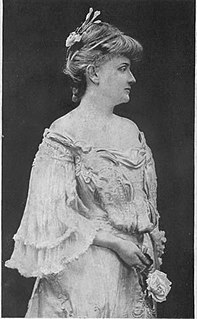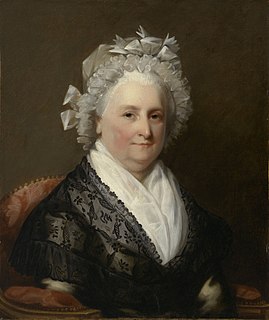Цитата Гертруды Атертон
Наши импульсы – это наше право по рождению. Изменить личность было бы несправедливо, почти преступно, ибо импульсы, которые выставляют нас дураками или еще хуже, при определенных обстоятельствах могут быть необходимы для нашего счастья.
Связанные цитаты
Ничто не может сказать нам так много об общем беззаконии человечества, как полное знакомство с нашим собственным неумеренным поведением. Если бы мы задумались над своими побуждениями, то узнали бы в своей душе руководящую основу всех пороков, которые мы упрекаем в других людях; и если его нет в самих наших действиях, то оно будет присутствовать по крайней мере в наших импульсах. Нет такой злобы, которую самолюбие не принесло бы нашему духу, чтобы мы могли воспользоваться любым случаем, и мало найдется людей, достаточно добродетельных, чтобы не поддаться искушению.
Подобно тому, как удовлетворение инстинкта приносит нам счастье, так и нам причиняются тяжелые страдания, если внешний мир позволяет нам голодать, если он отказывается удовлетворить наши потребности. Поэтому можно надеяться освободиться от части своих страданий, воздействуя на инстинктивные импульсы.
Мера нашей рациональности определяет степень живости, с которой мы оцениваем потребности другой жизни, степень, в которой мы осознаем реальный характер наших собственных мотивов и побуждений, способность согласовывать противоречивые побуждения в собственной жизни и в жизни. общества, а также способность выбирать адекватные средства для достижения одобренных целей.
Все движения нашего тела не просто продиктованы импульсом или усталостью; они являются правильным выражением того, что мы считаем благопристойным. Без импульсов мы не могли бы принимать участия в общественной жизни; с другой стороны, без торможения мы не могли бы исправлять, направлять и использовать наши импульсы.
В ноябре [2016 года] американцам придется принять решение о том, что нам небезразлично и кто мы такие. Мы получаем эти спазмы политики вокруг иммиграции и разжигания страха, а затем в дело вступают наши традиции, наша история и наши лучшие импульсы. Вот как мы все оказались здесь. Потому что я гарантирую вам, что в какой-то момент у каждого из нас был кто-то в нашем окружении, кто не хотел, чтобы люди сюда приезжали. И все же мы здесь.
Когда жизнь идет не по нашему сценарию или мы непреднамеренно совершаем ошибку, так легко оправдываться, возлагать вину на других или утверждать, что обстоятельства были против нас. Но мы прогрессируем в жизни только в той мере, в какой берем на себя ответственность за свои действия и отношения и проявляем инициативу, необходимую для создания собственных обстоятельств.
Я хорошо знаю, что некоторые импульсы труднее игнорировать, чем другие. Я знаю, что страх перед последствиями заставляет нас охранять наши секреты. Но именно наши действия, когда мы сталкиваемся с искушением, определяют, кто мы есть. Наше мужество признать, что мы сделали что-то не так, делает нас прощающими.
Я по-прежнему полон решимости быть веселым и счастливым в любой ситуации, в которой я могу оказаться, потому что я также узнал из опыта, что большая часть нашего счастья или несчастья зависит от наших склонностей, а не от наших обстоятельств; мы несем семена того или другого с собой, в своем уме, куда бы мы ни пошли.
Почему важна дисциплина? Дисциплина учит нас действовать по принципу, а не по желанию. Когда мы говорим «нет» своим побуждениям (даже тем, которые не являются греховными по своей сути), мы контролируем свои аппетиты, а не наоборот. Он низлагает нашу похоть и вместо этого позволяет истине, добродетели и честности управлять нашим разумом.



































